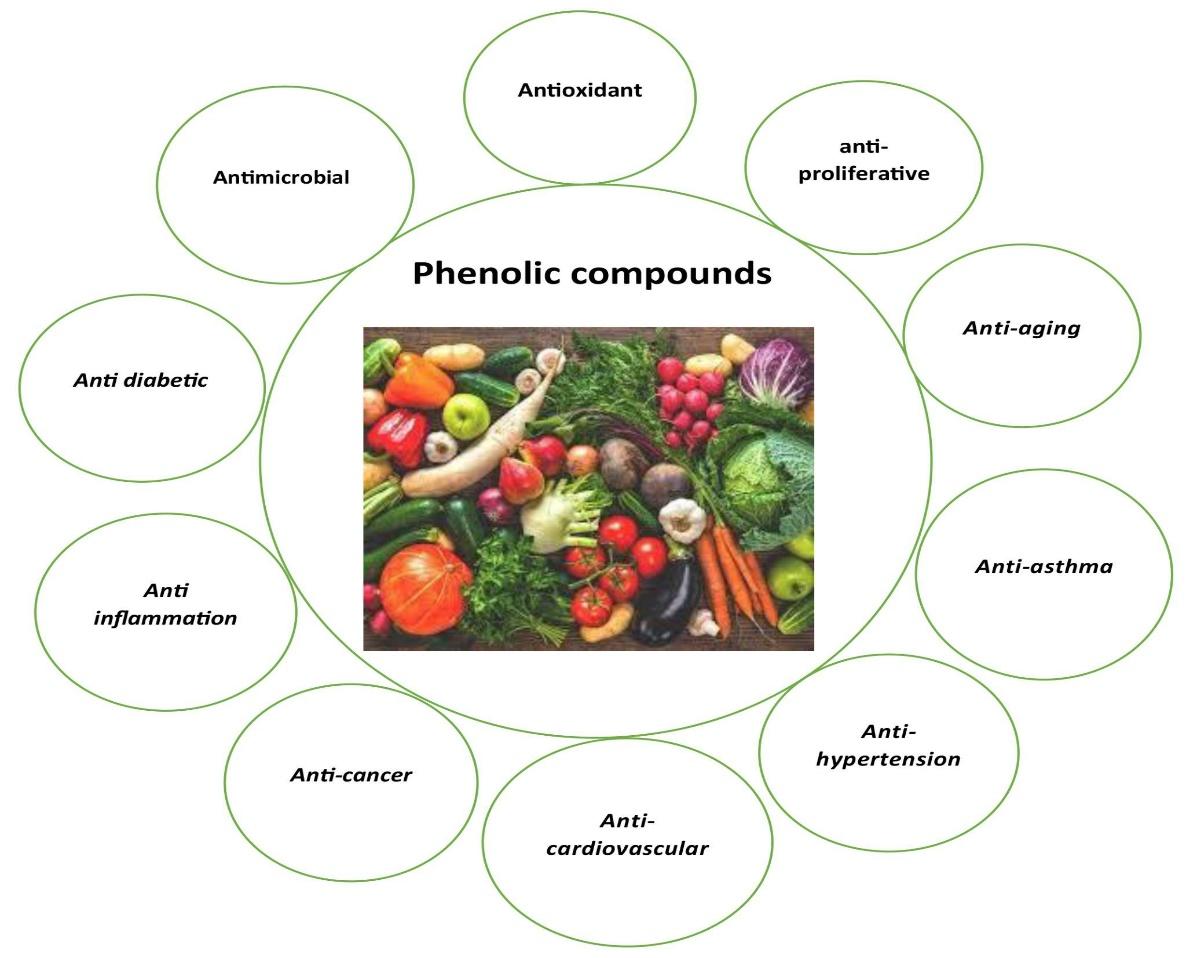Selected potential pharmaceutical and medical benefits of phenolic compounds: Recent advances
DOI:
https://doi.org/10.31989/ffs.v3i7.1118Abstract
Objective: Phenolic compounds are essential for defense reactions, including antioxidant, anti-inflammatory, antidiabetic, anti-proliferative activity, and anti-aging activity. Coming from the class of phytomedicine, they are widespread in the plant kingdom and are commonly taken as substances in the daily diet. They are mainly found in various types of edible plants, especially fruits, vegetables, and tea. Phenolic compounds have been investigated for their effects on human health due to their beneficial effects against oxidative stress activities. The proposed main mechanism of this protective effect against harmful oxidation processes is related to the radical scavenging activity of the phenolic compounds due to reactive oxygen and nitrogen substances.
The review uses up-to-date data via manual screening of the titles and abstracts of retrieved articles using string pharmaceutical and medical benefits of phenolic compounds as keywords to obtain publications from the electronic databases PubMed and Google Scholar using the publish or perish tool. However, priority has been given to the scientific papers, reports, and literature issued within the past 5 years.
Several types of research have been conducted on phenolic compounds due to their potential pharmacological activities. Dietary intake of phenolic compounds is also associated with reducing the risk of cardiovascular disease, mainly caused by oxidative stress and behavioral risk factors such as alcohol abuse, tobacco use, a high-fat diet, and a sedentary lifestyle. They are effective in fighting against various types of diseases.
Conclusion: This review article highlights the currently available information and knowledge on the potential pharmaceutical and health benefits of phenolic compounds.

Keywords: Phenolic compounds, flavanoids, Heart disease, Antioxidant, Cancer, Diabetes mellitus
Downloads
Published
Issue
Section
License
Any manuscripts or substantial parts of it, submitted to the journal must not be under consideration by or previously published in any other journal or citable form. Authors are required to ensure that no material submitted as part of a manuscript infringes existing copyrights or the rights of a third party. In submitting one's article in any form, the author has assigned the FFC publishing rights and has agreed to an automatic transfer of the copyright to the publisher. This is so that the FFC may create print option journals, for example, at the FFC’s discretion. If the author wishes to distribute their works by means outside of the FFC, for example within their community, they will have to place a request.
Correspondence concerning articles published in Functional Foods in Health and Disease is encouraged. While derivative works (adaptations, extensions on the current work, etc.) are allowed, distribution of the modified material is not allowed without permission from the FFC.